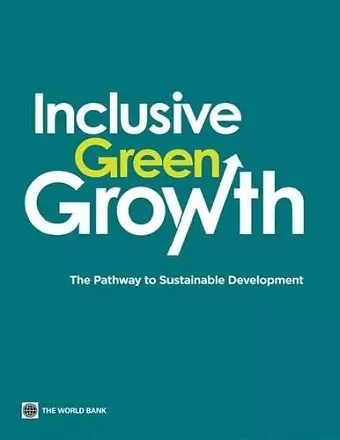Inclusive Green Growth
The Pathway to Sustainable Development
Format:Paperback
Publisher:World Bank Publications
Published:23rd May '12
Currently unavailable, and unfortunately no date known when it will be back

As the global population heads toward 9 billion by 2050, decisions made today will lock countries into growth patterns that may or may not be sustainable in the future. Care must be taken to ensure that cities and roads, factories and farms are designed, managed, and regulated as efficiently as possible to wisely use natural resources while supporting the robust growth developing countries still need. Economic development during the next two decades cannot mirror the previous two: poverty reduction remains urgent but growth and equity can be pursued without relying on policies and practices that foul the air, water, and land. Inclusive Green Growth: The Pathway to Sustainable Development makes the case that greening growth is necessary, efficient, and affordable. Yet spurring growth without ensuring equity will thwart efforts to reduce poverty and improve access to health, education, and infrastructure services. Countries must make strategic investments and farsighted policy changes that acknowledge natural resource constraints and enable the world's poorest and most vulnerable to benefit from efficient, clean, and resilient growth. Like other forms of capital, natural assets are limited and require accounting, investment, and maintenance in order to be properly harnessed and deployed. By maximizing co-benefits and avoiding lock-in, by promoting smarter decisions in industry and society, and by developing innovative financing tools for green investment, we can afford to do the things we must.|
The poor health of today's roads--a subject close to the hearts of motorists, taxpayers, and government treasurers around the world--has resulted from faulty incentives that misdirect government decision-makers, according to the contributors to Street Smart. During the 1990s, bad government decision-making resulted in the U.S. Interstate Highway System growing by only one seventh the rate of traffic growth. The poor maintenance of existing roads is another concern. In cities around the world, highly political and wasteful government decision-making has led to excessive traffic congestion that has created long commutes, reduced safety, and caused loss of leisure time. Street Smart examines the privatization of roads in theory and in practice. The authors see at least four possible roles for private companies, beyond the well-known one of working under contract to design, build, or maintain governmentally provided roads. These include testing and licensing vehicles and drivers; management of government-owned facilities; franchising;...
Street Smart: Competition, Entrepreneurship, and the Future of Roads by Gabriel Roth was named one of the Best 10 Books of the Year 2007 in planning by Planetizen, the Planning and Development Network. Their website reads: ""In this provocative and enlightening compilation, the leading thinkers on privatization put forth market-based solutions for providing roadways and dealing with traffic congestion. A valuable resource for understanding the argument for privatization.""
""Private turnpikes were commonplace in the eighteenth and early nineteenth centuries but they eventually succumbed to competition from railways and onerous government regulations. Street Smart makes an eloquent and convincing argument that the time is ripe for the private sector to make a comeback with a boost from modern electronic tolling technology and innovative contract designs. Chapters are organized into five parts that complement each other nicely. Early chapters explain why market forces allocate resources efficiently and describe various roles for the private sector in supplying road infrastructure and services. Later chapters describe the history of private roads and some recent, encouraging, developments with privatization, and suggest alternative ways forward in the course of privatization. Written by leading economists, engineers and other professionals, Street Smart is essential reading for academics, policy analysts and policy makers, as well as firms contemplating involvement themselves.""--Robin Lindsey, Department of Economics, University of Alberta; Edmonton, Alberta
ISBN: 9780821395516
Dimensions: unknown
Weight: 1200g
192 pages